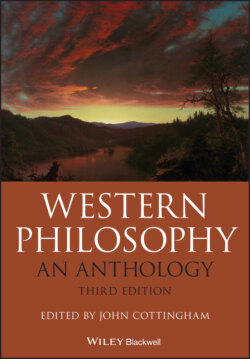Читать книгу Western Philosophy - Группа авторов - Страница 66
We are in possession of certain modes of a priori knowledge, and even the common understanding is never without them
ОглавлениеWhat we require here is a criterion by which to distinguish with certainty between pure and empirical knowledge. Experience teaches us that a thing is so and so, but not that it cannot be otherwise. First, then, if we have a proposition which is thought of as necessary, it is an a priori judgement; and if in addition it is not derived from any proposition except one also having the validity of a necessary judgement, it is an absolutely a priori judgement. Secondly, experience never confers on its judgements true or strict, but only assumed and comparative universality, through induction.2
We can properly only say, therefore, that so far as we have hitherto observed there is no exception to this or that rule. If, then, a judgement is thought with strict universality, in such a manner that no exception is allowed as possible, it is not derived from experience, but is valid absolutely a priori. Empirical universality, by contrast, is only an arbitrary extension of a validity holding in most cases to one which holds in all (for instance, in the proposition ‘all bodies are heavy’). When, on the other hand, strict universality is essential to a judgement, this involves a special source of knowledge, namely a faculty of a priori knowledge. Necessity and strict universality are thus sure criteria of a priori knowledge, and are inseparable from each other …
Now it is easy to show that there are actually in human knowledge judgements which are necessary and in the strictest sense universal, and which are therefore pure a priori judgements. If an example from the sciences is asked for, we have only to look to any of the propositions of mathematics. If we seek an example from the understanding in its quite ordinary employment, the proposition ‘every change must have a cause’ will serve our purpose. Here the very concept of a cause so manifestly contains the concept of necessary connection with an effect, and of the strict universality of this rule, that the concept would be altogether lost if we tried to derive it (as Hume did)3 from a repeated association of that which happens with that which precedes … Even without appealing to such examples, it is possible to show that pure a priori principles are indispensable for the possibility of experience, and so to prove their existence a priori. For how could experience get its certainty if all the rules whereby it proceeds were always themselves empirical and therefore contingent? Such rules could hardly be regarded as first principles …
